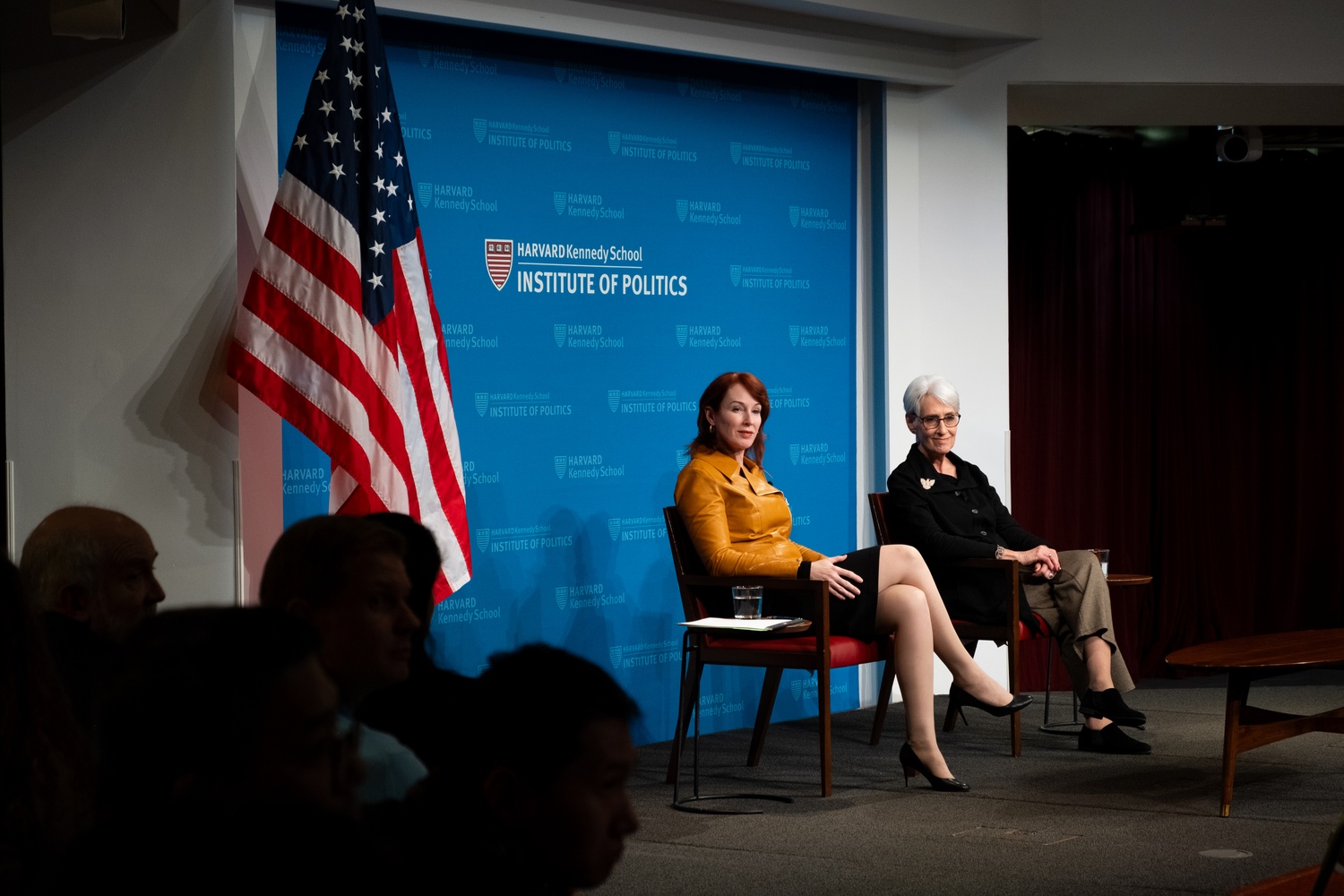
News
Summers Will Not Finish Semester of Teaching as Harvard Investigates Epstein Ties

News
Harvard College Students Report Favoring Divestment from Israel in HUA Survey

News
‘He Should Resign’: Harvard Undergrads Take Hard Line Against Summers Over Epstein Scandal

News
Harvard To Launch New Investigation Into Epstein’s Ties to Summers, Other University Affiliates

News
Harvard Students To Vote on Divestment From Israel in Inaugural HUA Election Survey
Wendy Sherman Says Gaza Situation is ‘Absolutely Dire’ During Harvard IOP Talk

Former Deputy Secretary of State Wendy R. Sherman said the humanitarian “situation in Gaza is absolutely dire” during a talk at a Harvard Institute of Politics forum on Tuesday.
Sherman’s comments came during an event hosted by the IOP about the national security and foreign policy challenges that the next U.S. president will face after they take office in January. Vice President Kamala Harris and former President Donald Trump are in the final weeks of a campaign to succeed President Joe Biden, who dropped out of the race in July.
The war in Israel and Gaza has emerged as one of the most prominent foreign policy issues during the 2024 presidential election, with many Democratic voters sharply divided over the conflict.
The death toll in Gaza has surpassed 42,000 people, according to the Hamas-run Gaza Health Ministry, which does not distinguish between civilians and combatants. The vast majority of the dead are women and children, according to the ministry.
Belfer Center for Science and International Affairs Director Meghan L. O’Sullivan moderated the event with Sherman, which touched on a number of major U.S. foreign policy issues, including the war in Ukraine, the ongoing conflict between Israel and Palestine, U.S.-China relations, and the Biden administration’s withdrawal from Afghanistan.
Even as Sherman highlighted the humanitarian devastation caused by Israel’s yearlong war in Gaza, she said that Israel had a right under international law to protect itself from future terrorist attacks.
“I firmly believe that Israel has a right to defend itself,” Sherman said.
She also emphasized that the United States and Israel are not the only countries responsible for fostering a democracy in Palestine.
“We don’t always talk about the rest of the region or the rest of the world and their role in helping the Palestinians ensure that they have a political horizon and a way to have a state for their own peace and dignity,” she said.
“That’s partly our job, that’s Israel’s job, but it’s also the job of all the other regional players,” Sherman added.
During the event, Sherman also discussed the dangers of American isolationism.
“In order to preserve our country and take care of American citizens, we have to engage with the world,” Sherman said. “To keep the world peaceful, to get stability, to have a robust economy, we have to engage with others.”
In response to a question about the war in Ukraine from O’Sullivan, Sherman said that she expects the conflict to continue stalemating.
“I don’t think Putin is anywhere close to wanting to negotiate unless he can negotiate on his own terms — and that is to have Ukraine,” Sherman said.
Bahar Moradi ’27, a member of the IOP’s JFK Jr. Forum Committee, said in an interview after the event that it’s important to have conversations that reach out to a broad range of people, “especially with the election around the corner.”
Some other attendees, however, said that they wished Sherman spoke more about Trump and Harris’ foreign policy positions.
“I wanted to hear more about the next president, what her projections were,” said Mohammad-Reza Jamali, a graduate student at Tufts University’s Fletcher School who is enrolled in courses at the Harvard Kennedy School.
Sherman said in an interview with The Crimson after the event that she believed the American electorate needed to remain invested in Washington remaining a major player on the world stage.
“I think it is really critical for everyone in America to understand that although we must invest in our own country, our future is connected to the rest of the world,” Sherman said.
“We have to understand our place in the world, and how we can best engage in a way that secures our future,” Sherman added.
Want to keep up with breaking news? Subscribe to our email newsletter.
